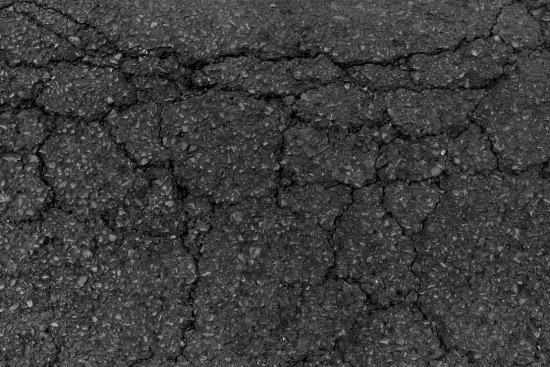
Introduction
Asphalt driveways provide durability and a smooth surface, making them a popular choice for homeowners. However, over time, exposure to environmental factors and traffic can lead to asphalt damage, requiring costly repairs. Understanding the common causes of asphalt driveway damage and how to prevent them can help homeowners prolong the lifespan of their driveways and avoid unnecessary expenses.
In this guide, we’ll discuss the main types of asphalt pavement damage, what causes asphalt to deteriorate, and how proper asphalt maintenance can prevent damage. If you need expert advice on repairing asphalt driveway issues or driveway paving in Conover, NC, contact us today at Hickory Asphalt Paving at (828) 405-4578.
1. Water Damage and Poor Drainage
One of the leading common causes of asphalt damage is water damage. When water seeps into small cracks in asphalt, it can weaken the pavement surface and cause significant deterioration over time. Standing water from poor drainage accelerates this process, leading to larger cracks, potholes, and even complete pavement failure.
How to Prevent Water Damage:
- Ensure proper pavement edge support to prevent water pooling.
- Install an efficient drainage system to redirect water away from the asphalt surface.
- Regularly inspect and apply sealcoating to create a protective barrier.
- Perform crack filling as soon as cracks form to prevent water infiltration.
2. Heavy Traffic Loads
Frequent exposure to heavy vehicles and traffic loads can damage your asphalt driveway, causing pavement fatigue and depressions. Parking lots and driveways that experience excessive heavy loads are more susceptible to damage due to compression and stress.
How to Prevent Damage from Heavy Traffic:
- Choose a type of asphalt designed for high-traffic areas.
- Ensure the asphalt is installed with the proper thickness to withstand pressure.
- Avoid parking heavy trucks or trailers in the same spot for long periods.
3. UV Rays and Sun Exposure
Constant exposure to UV rays can cause asphalt to become brittle and lose its flexibility. Over time, the asphalt binder breaks down, leading to cracks in asphalt and surface discoloration.
How to Protect Your Asphalt from Sun Damage:
- Sealcoat your driveway every 2-4 years to provide a protective layer.
- Keep the driveway clean to reduce heat absorption.
- Apply asphalt maintenance services regularly to prevent early deterioration.
4. Temperature Changes and Seasonal Expansion and Contraction
Extreme temperature changes can lead to asphalt shrinkage, causing cracks form as the pavement surface expands and contracts. In colder climates, water trapped underneath the asphalt freezes and expands, leading to larger cracks and pavement issues.
Ways to Prevent Temperature-Related Damage:
- Use high-quality paving materials that can withstand expansion and contraction.
- Perform crack sealing regularly to prevent moisture infiltration.
- Schedule pavement maintenance to inspect for seasonal damage.
5. Poor Installation and Low-Quality Materials
A poorly installed driveway with insufficient base preparation or substandard paving materials can lead to early asphalt damage. Cracked pavement layers and pavement chunk dislodging are common signs of improper installation.
How to Prevent Poor Installation Issues:
- Hire a reputable asphalt contractor like Hickory Asphalt Paving.
- Ensure proper compaction of the asphalt and its base.
- Use high-quality asphalt binder to increase durability.
6. Oil and Chemical Spills
Leaks from vehicles, including oil, gasoline, and other chemicals, can break down the asphalt surface, causing deterioration and soft spots.
How to Prevent Chemical Damage:
- Clean up spills immediately using absorbent materials.
- Apply a sealcoat to create a protective layer.
- Regularly inspect the asphalt surface for signs of damage.
7. Tree Roots and Vegetation Growth
Tree roots growing beneath the pavement surface can cause cracks form and uneven driveways. Nearby shrubs and plants can also weaken the pavement edge, leading to deterioration.
How to Prevent Tree Root Damage:
- Avoid planting trees close to your asphalt driveway.
- Trim tree roots before they reach the pavement.
- Use root barriers to prevent underground growth.
8. Lack of Regular Maintenance
Failing to conduct proper maintenance is one of the main contributors to asphalt damage. Small cracks and early signs of deterioration should be addressed before they escalate into major issues.
Preventative Maintenance Tips:
- Perform crack repair and crack sealing annually.
- Resurface or sealcoat your driveway every few years.
- Remove standing water and debris regularly.
- Work with a professional asphalt repair company for inspections.
How to Protect Your Asphalt Driveway
If you’re wondering, “How do I protect my driveway from asphalt damage?”, the best approach is proactive maintenance. Here’s a quick guide:
- Resurface your driveway when pavement thickness is compromised.
- Use sealant to prevent water seeps and damage.
- Avoid standing water, heavy vehicles, and poor drainage.
- Work with an expert asphalt paving contractor to ensure quality installations.
Need Professional Driveway Repairs? Contact Us Today!
At Hickory Asphalt Paving, we specialize in repairing asphalt driveway issues and driveway paving in Conover, NC. Whether your driveway is showing signs of potholes, cracks, or pavement fatigue, we offer cost-effective solutions to restore its durability.
Contact us today at (828) 405-4578 to schedule a free estimate and keep your driveway in top condition!
